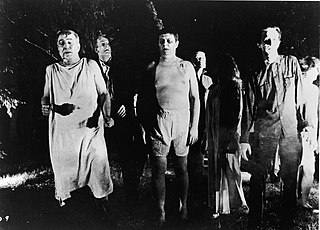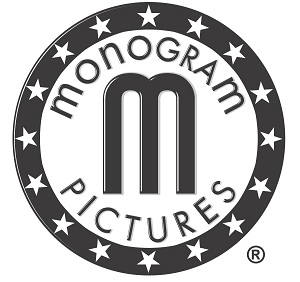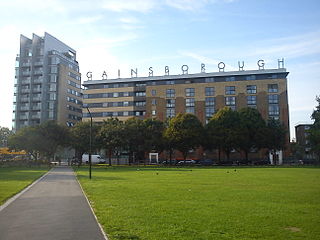This article needs additional citations for verification .(March 2018) |
| Industry | Film |
|---|---|
| Founded | April 1918 |
Stoll Pictures was a British film production and distribution company of the silent era, founded in April 1918.
This article needs additional citations for verification .(March 2018) |
| Industry | Film |
|---|---|
| Founded | April 1918 |
Stoll Pictures was a British film production and distribution company of the silent era, founded in April 1918.
During the early to mid-1920s it was the largest film company in Britain and one of the biggest in Europe. Its major domestic rival was the Ideal Film Company. Stoll's films were primarily made at its Cricklewood Studios, although the smaller Surbiton Studios were also used during the early years of the company's existence. [1] The company takes its name from its founder Sir Oswald Stoll, better known today as a theatre owner.
Stoll produced a series of expensive films during the early 1920s such as The Four Feathers and The Prodigal Son - which cost £37,000 (equivalent to £2.25 million in 2021 [2] ), and was at the time the most expensive British production ever. [3] The film's original release length of 18,454 feet made it the longest commercially made British film. [4] The studio was a major victim of the Slump of 1924 and cut back production, relying on several co-productions with European firms. The company became particularly known for its film series such as Fu Manchu and Sherlock Holmes. The company ran its own magazine Stoll's Editorial News .

The United Kingdom has had a significant film industry for over a century. While film production reached an all-time high in 1936, the "golden age" of British cinema is usually thought to have occurred in the 1940s, during which the directors David Lean, Michael Powell, and Carol Reed produced their most critically acclaimed works. Many British actors have accrued critical success and worldwide recognition, such as Audrey Hepburn, Olivia de Havilland, Vivien Leigh, Glynis Johns, Maggie Smith, Laurence Olivier, Michael Caine, Sean Connery, Ian Mckellen, Joan Collins, Judi Dench, Julie Andrews, Daniel Day-Lewis, Gary Oldman, Emma Thompson, Anthony Hopkins and Kate Winslet. Some of the films with the largest ever box office returns have been made in the United Kingdom, including the fourth and fifth highest-grossing film franchises.

A B movie, or B film, is a type of low-budget commercial motion picture. Originally, during the Golden Age of Hollywood, this term specifically referred to films meant to be shown as the lesser-known second half of a double feature, somewhat similar to B-sides in the world of recorded music. However, the production of such films as "second features" in the United States largely declined by the end of the 1950s. This shift was due to the rise of commercial television, which prompted film studio B movie production departments to transition into television film production divisions. These divisions continued to create content similar to B movies, albeit in the form of low-budget films and series.

Universal City Studios LLC, doing business as Universal Studios or simply Universal, is an American film production and distribution company owned by NBCUniversal, a division of Comcast.
Columbia Pictures Industries, Inc. is an American film production and distribution company that is a member of the Sony Pictures Motion Picture Group, a division of Sony Pictures Entertainment, which is one of the Big Five studios and a subsidiary of the multinational conglomerate Sony.

Republic Pictures Corporation was an American film studio corporation that originally operated from 1935 to 1967, based in Los Angeles, California. It had production and distribution facilities in Studio City, as well as a movie ranch in Encino.

Monogram Pictures Corporation was an American film studio that produced mostly low-budget films between 1931 and 1953, when the firm completed a transition to the name Allied Artists Pictures Corporation. Monogram was among the smaller studios in the golden age of Hollywood, generally referred to collectively as Poverty Row. Lacking the financial resources to deliver the lavish sets, production values, and star power of the larger studios, Monogram sought to attract its audiences with the promise of action and adventure.

Educational Pictures, also known as Educational Film Exchanges, Inc. or Educational Films Corporation of America, was an American film production and film distribution company founded in 1916 by Earle Hammons (1882–1962). Educational primarily distributed short subjects; it is best known for its series of comedies starring Buster Keaton (1934– 37) and the earliest screen appearances of Shirley Temple (1932–34). The company ceased production in 1938, and finally closed in 1940 when its film library was sold at auction.
Poverty Row is a slang term used to refer to Hollywood films produced from the 1920s to the 1950s by small B movie studios. Although many of them were based on today's Gower Street in Hollywood, the term did not necessarily refer to any specific physical location, but was rather a figurative catch-all for low-budget films produced by these lower-tier studios.

The B movie, whose roots trace to the silent film era, was a significant contributor to Hollywood's Golden Age of the 1930s and 1940s. As the Hollywood studios made the transition to sound film in the late 1920s, many independent exhibitors began adopting a new programming format: the double feature. The popularity of the twin bill required the production of relatively short, inexpensive movies to occupy the bottom half of the program. The double feature was the predominant presentation model at American theaters throughout the Golden Age, and B movies constituted the majority of Hollywood production during the period.
Grand National Films, Inc was an American independent motion picture production-distribution company in operation from 1936 to 1939. The company had no relation to the British Grand National Pictures.
Lippert Pictures was an American film production and distribution company controlled by Robert L. Lippert.
A film studio is a major entertainment company that makes films. They may have their own privately owned studio facility or facilities; however, most firms in the entertainment industry have never owned their own studios, but have rented space from other companies. The day-to-day filming operations are generally handled by their production company subsidiary.
Julius Hagen (1884–1940) was a German-born British film producer who produced more than a hundred films in Britain.
Welwyn Studios was a British film studio located at Broadwater Road, Welwyn Garden City, in Hertfordshire. The facility operated between 1928 and 1950.

Islington Studios, often known as Gainsborough Studios, were a British film studio located on the south bank of the Regent's Canal, in Poole Street, Hoxton in the former Metropolitan Borough of Shoreditch, London between 1919 and 1949. The studios are closely associated with Gainsborough Pictures which was based there for most of the studio's history. During its existence Islington worked closely with its sister Lime Grove Studios in Shepherd's Bush and many films were made partly at one studio and partly at the other. Amongst the films made at the studios were Alfred Hitchcock thrillers, Will Hay comedies and Gainsborough Melodramas.
Surbiton Studios were a British film studio located in Surbiton, then on the outskirts of London. The studio was one of several opened during the boom in British production following the First World War. It was opened in 1918 and its first film was released in January 1919. Its owners were Stoll Pictures which became one of the largest British film company of the early 1920s.
Astra Films was a British film production and distribution company of the silent era. It was set up in Leeds following the First World War by the film director Herbert Wilcox, his younger brother Charles Wilcox and H.W. Thompson, a leading figure in film distribution in the North of England. After the company's initial success, Wilcox left the firm to set up on his own and rose to become one of the most successful independent producer-directors in the world. After a merger the company released films under the name Astra-National.